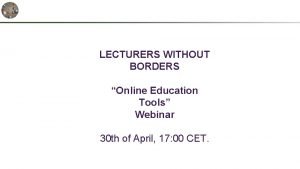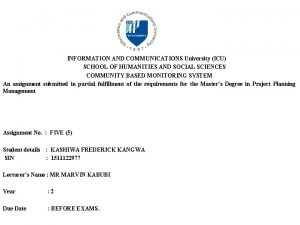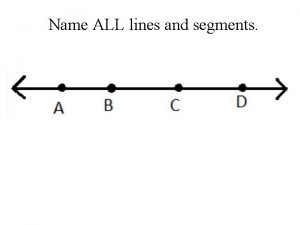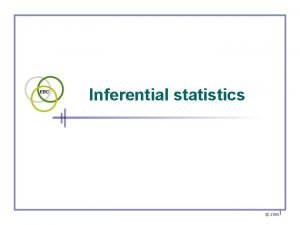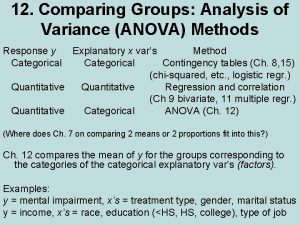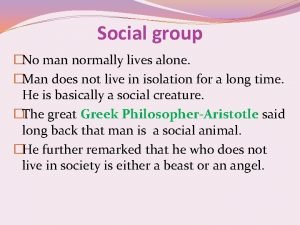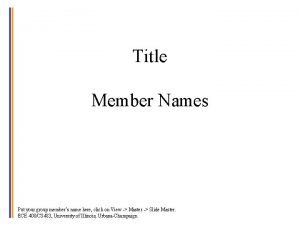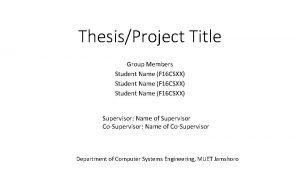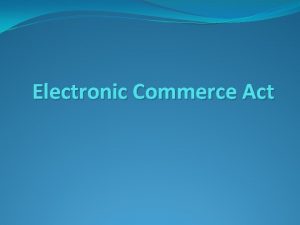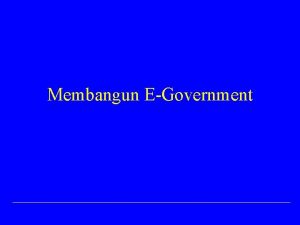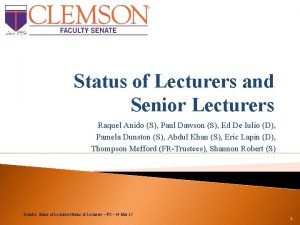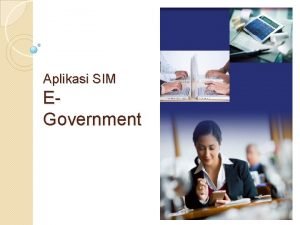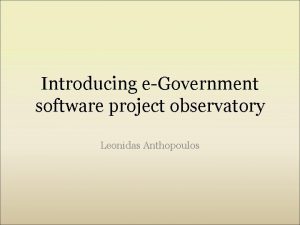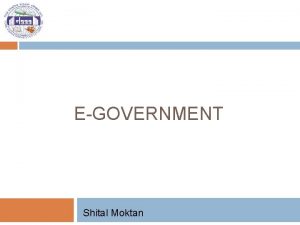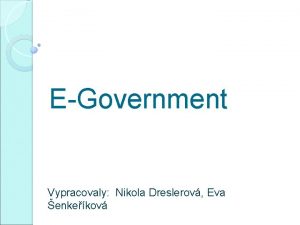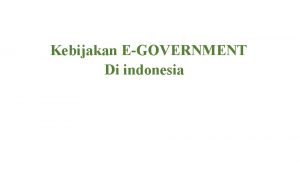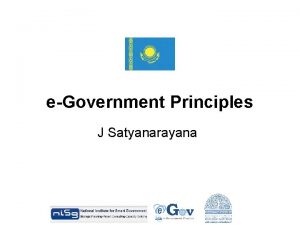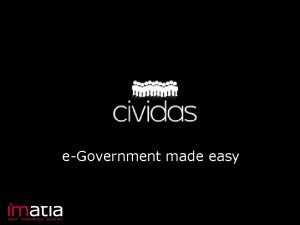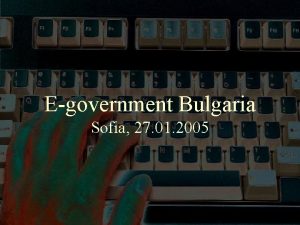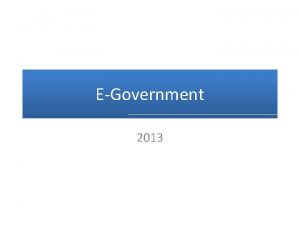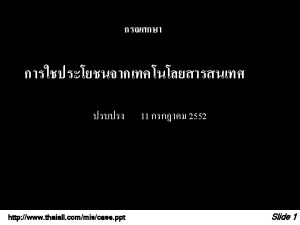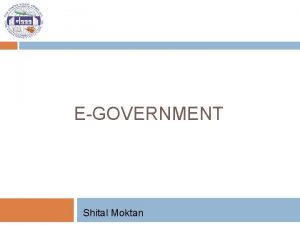EGovernment Lecturers Name Dr Norazila Bt Mat Group

E-Government � Lecturer’s Name : Dr Norazila Bt. Mat � Group 12 : Ø M. Aswin Hendrayadi A 138745 Ø Marwan Pribadi A 138749 Ø Mohamad Azri Azhar A 136687 Ø Wong Wai Kit A 137052 Ø Abu Na’im Roslim A 135785

Definitions of E-Government � The use of digital technologies to transform government operations in order to improve effectiveness, efficiency, and service delivery. � 'Electronic Government' (or in short 'e. Government') essentially refers to ‘The utilization of Information Technology (IT), Information and Communication Technologies (ICTs), and other web-based telecommunication technologies to improve and/or enhance on the efficiency and effectiveness of service delivery in the public sector. ’ (Jeong, 2007)

Objectives of E- Government � Ø � Ø Strategic Objective Support and simplify governance for both citizens and government and also for businesses. Internal Objective Facilitate a speedy, transparent, accountable, efficient and effective process for performing government administration activities. Significant cost savings (per transaction) in government operations could be the result. External Objective Fulfill the public as needs and expectations satisfactory on the front-office side, by simplifying the interaction with various online services.

Role of E-Government in a Country � Pushing information over the Internet. Example : regulatory services, general holidays, public hearing schedules, issue briefs, notifications, etc. � Two-way communications between the agency and the citizen, a business, or another government agency. In this model, users can engage in dialogue with agencies and post problems, comments, or requests to the agency.

Role of E-Government in a Country � Conducting transactions. Examples: lodging tax returns, applying for services and grants. � Governance. Examples: To enable the citizen transition from passive information access to active citizen participation by: Ø Informing the citizen Ø Representing the citizen Ø Encouraging the citizen to vote Ø Consulting the citizen Ø Involving the citizen

Effects of E- Government on Public Administration � The ultimate goal of the E-Government is to be able to offer an increased portfolio of public services to citizens in an efficient and cost effective manner. � E-government allows for government transparency. � Government transparency is important because it allows the public to be informed about what the government is working on as well as the policies they are trying to implement.

Effects of E- Government on Public Administration � Advantages : v Speed, efficiency, and convenience Allows citizens to interact with computers to achieve objectives at any time and any location, and eliminates the necessity for physical travel to government agents sitting behind desks and windows.

Effects of E- Government on Public Administration v Online access to public services E-government helps simplify processes and makes access to government information more easily accessible for public sector agencies and citizens. v Democratization Greater citizen participation. people from all over the country can interact with politicians or public servants and make their voices heard.

Effects of E- Government on Public Administration v To increase internal efficiency in public administration. v To create new services. v Information sharing among Institution. v High Performance in teamwork. v Environmental governance.

Effects of E- Government on Public Administration � The main disadvantages concerning egovernment is the lack of equality in public access to the internet, reliability of information on the web, and hidden agendas of government groups that could influence and bias public opinions.

Effects of E- Government on Public Administration � Disadvantages v Difficult access for disabilities An e-government site that provides web access and support often does not offer the "potential to reach many users including those who live in remote areas, are homebound, have low literacy levels, exist on poverty line incomes

Effects of E- Government on Public Administration v False sense of transparency and accountability Online governmental transparency is dubious because it is maintained by the governments themselves. Information can be added or removed from the public eye.

Effects of E- Government on Public Administration v Cases of confidentiallity, copyrights and protection of public information Potentially lead to a lack of privacy for civilians as their government obtains more and more information on them.

Effects of E- Government on Public Administration v Overloaded information v Gaps result from unequal availability opportunities v Costly

E-Government in Malaysia � As one of the strategies to achieve Vision 2020, Multimedia Super Corridor (MSC) has been introduced to accelerate Malaysia’s entry into Information Age. � Electronic Government (e-Government) was initiated in Malaysia on 24 February 2004. � The Vision of e-Government is to transform administrative process and service delivery through the use of IT and multimedia.

E-Government in Malaysia The my. Government Portal (www. gov. my) could be described as one-stop source of Malaysian government information and services for the citizens. � The digital government plays an important role to provide public service a fast, easy and with integrity information at a click. �

E-Government in Malaysia � The Malaysian Administrative Modernization and Management Planning Unit (MAMPU) is promoting the use of e-Government among the public. � Among the online services provided under the website include : Ø Zakat Ø Loan and quit rent payments

Current E- Government Projects � E-Services � Project Monitoring System (SPP II) � Generic Office Environment � E-Procurement � E-Syariah � Electronic Labour Exchange � E-Land � E-Courts � Human Resource Management

E-Government in Malaysia “E-Government is well advanced and has become an integral component of a much broader service delivery agenda in Malaysia”

Thank you very much You can also looking the relate topic in our ‘edcanvas’
- Slides: 20

